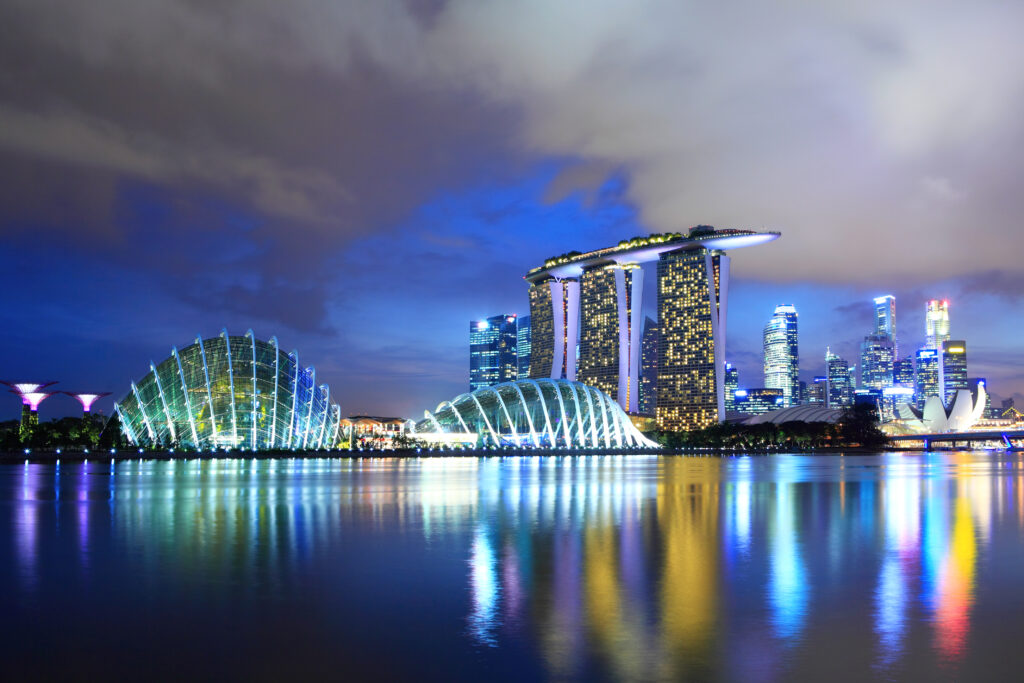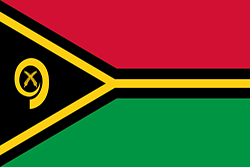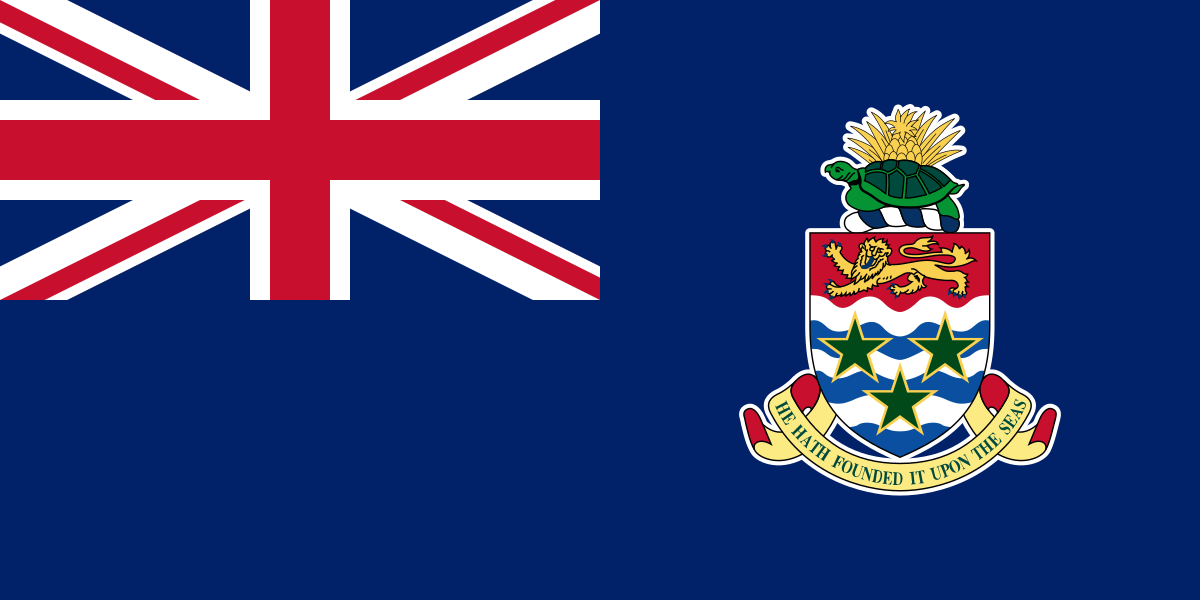Living in Singapore
One of the goals of the Singaporean government is to attract talented people to reside and work in the country. The intention of the government is for foreign nationals to live in Singapore by becoming permanent residents.
The Republic of Singapore is located in Southeast Asia and is made up of the island of Singapore and 57 small neighboring islands, which are located near the equator. Singapore was originally established as a British trading colony in the 19th century and gained independence in 1965.
Today it has emerged as a world-class destination with a multi-ethnic society and culture. Singapore is a city-state with a rich blend of cultures, coexisting in harmony within an organized community. It has a population of 6 million, with English and Mandarin as the main languages spoken. English is a common language in Singapore and is used especially in administration, business and technology, which makes it accessible to expats.
Singapore is politically stable and one of the wealthiest countries in the world. This factor combined with the high quality of service and quality of life make this place an ideal environment to live and do business.
Although Singapore is one of the most expensive places to live, there is a reason why it is often voted the best Asian city to live in thanks to its renowned infrastructure and public services. Singapore is an exception compared to other major cities by the fact that it has one of the lowest crime rates in the world, where waste is also punishable by law. Singapore also has a reputable education system and a reliable healthcare system.
It is one of the richest countries in the world, with the highest proportion of millionaires. The island nation has modern telecommunications, business and financial facilities. It has become an international financial center, as evidenced by the presence of many international banks and the volume of financial transactions that take place on this thriving island.
Globally, Singapore is considered one of the richest countries in terms of GDP per capita. The country has a friendly tax regime and has continued to introduce favorable tax regulations for foreign investors in recent years. Singapore’s tax system operates on a territorial basis. For these reasons, Singapore is an attractive choice for high-net-worth individuals who appreciate the fast pace of business and the city’s nightlife.
Over the past 20 years, the Singapore government has made great efforts in attracting exceptional talent and human resources to create conditions for the economy to continue to grow. As an investor interested in starting a business or investing in Singapore, applicants can apply for permanent residency in Singapore through the Global Investor Program. The Program is geared towards entrepreneurs and requires a minimum of S$2.5 million (US$1.8 million).
Singapore Business Environment
Singapore consistently ranks high among the best places to do business mainly, even ahead of Hong Kong and the United States, due to its high connectivity, supportive corporate culture and good talent-to-cost ratio in comparison to other markets.
One of the main benefits of doing business in Singapore is the low corporate tax rate of 17% and the business-friendly tax laws. These are especially beneficial for foreign investors due to the extensive network of double taxation agreements covering more than 80 markets around the world.
For start-ups, there is also a zero-tax attraction program for several years which allow new businesses to easily enter the Singapore market. It is rumored that you can start a business there within three hours. Listed here are some of the several reasons that Singapore is considered a world-leading pro-business environment.
Headquarters for Leading Companies
From the world’s largest multinationals to the fastest growing startups, Singapore continues to be the partner of choice for businesses. With the rise of the Southeast Asian economy, companies looking to strengthen their presence can also leverage Singapore as a gateway to the region.
Asia’s Leading Innovation Hub
As a global hub for innovation, Singapore has built a vibrantly connected ecosystem with global research and development labs for major Fortune 500 companies and venture capital funds. Consistently ranked as one of the most innovative cities in the world, Singapore works with companies to develop solutions to address the world’s most pressing problems.
Advanced Manufacturing Hotspot
Thanks to its innovative capabilities and technical expertise, Singapore is recognized as a global leader in high-value manufacturing. The country is the fourth largest exporter of high-tech products in the world. Moreover, under the Research, Innovation and Enterprise 2020 plan, the government is investing more than S$ 3 billion over five years to further enhance Singapore’s advanced manufacturing capabilities.
Fast Business Setup
The country has designed its regulations and business processes to be transparent and streamlined. The fully digitized processes for incorporation allow you to start your business quickly and affordably, even from abroad.
Diverse Business Ecosystem
With over 3,000 startups connected to a global network of 300 investors and over 100 incubators and accelerators in Singapore, the startup ecosystem is thriving. Business parks and innovation hubs in Singapore further connect you with skills and networks, allowing you to make connections with important business partners.
Benefits of Doing Business in Singapore
Robust Economy
Singapore has a well-developed free market economy based mainly on trade, finance and manufacturing. Services account for 75% of the country’s GDP and employ 80% of the workforce.
The country has managed to achieve a very low unemployment rate while keeping inflation low. The country has no external public debt and has actively invested its capital abroad. It also funds subsidized programs for housing, education, transport and health care.
All these attributes make Singapore a very solid and well-managed economy. For a small country with limited natural resources, achieving such a strong economy is testament to the planning of its leaders.
Attractive Tax Regime
Singapore has one of the most simple and most streamlined tax systems in the world. There are no taxes on capital gains or dividends received by a company. This makes the country especially attractive to entrepreneurs looking to incorporate and build a new business.
New businesses enjoy substantial tax relief for the first 3 years by reducing the tax rate to 0% for the first S$100,000 of income. The corporate tax rate is capped at 17%. Further, corporate profits are not double-taxed when they are passed on to shareholders as dividends.
Likewise, the individual tax rate starts at 0%, then gradually increases to a maximum of 20% on incomes above S$320,000. Finally, Singapore applies one of the lowest value-added tax rates in the world.
Singapore has an extensive network of double taxation agreements with more than 50 countries. Therefore, it is very difficult for a company residing in Singapore to be taxed twice.
100% Foreign Ownership
Singapore allows foreigners to own 100% of the shares of a company incorporated in Singapore. No local partners or shareholders required. This allows you to start your business with your preferred capital structure and distribute ownership based on your investment needs.
Furthermore, there are no restrictions on the amount of capital you can bring from your home country to invest in your Singapore company.
Supporting Startups
The Singapore government adopts law and policies that are very conducive to growth and innovation. It offers a variety of grants, tax incentives, and support programs for startups.
In some sectors, the government may also subsidize the labor costs of a new business. These benefits are available to domestic and foreign businesses. Over the past decade, Singapore has grown into the main hub in Asia for venture capital funds.
Ease of Incorporation
Singapore has one of the most efficient regulatory frameworks in the world. The requirements and procedure for setting up a company are very simple. In most cases, it takes less than a day to form a new company. Likewise, the annual compliance requirements are free of unnecessary or complicated paperwork.
Incorporating a Company in Singapore
The company registration procedure is fully computerized in Singapore. Usually, a company can be established in one or two days. To register a business, applicants must use the BizFile+ website. Otherwise, the applicant can also use the services of a registered law firm, an accounting firm or a secretarial firm.
The following are steps to incorporating your business in Singapore.
Select company name and address
To form a company in Singapore, you must first approve the proposed name for the company. Company names are approved by submitting an application to ACRA. Typically, the name approval/rejection notice will arrive in less than an hour. To increase your chances of getting a name approved quickly, make sure the intended name is not the same or too similar to any existing local company name. Approved names will be reserved for 60 days from the date the application is submitted.
Preparation of company formation for submission
The next step in registering a company involves presenting to ACRA the constitution of the company (also known as the Deed of Incorporation and Articles of Association). The constitution is a legal document that establishes the rules for how a company will be managed internally, its structure, rights and relations with shareholders, and other rules necessary for its management. This document is often reviewed by attorneys as part of the incorporation process.
Complete registration on BizFile +
Once you have selected your company name, address and your constitution is ready to submit, you can proceed to fill in other details required on BizFile+. Other important information includes detailed information about the shares, as well as the directors and officers of the company. The registration fee is S$315. Once the fee is paid, the company can be incorporated within 15 minutes.
Draft your shareholder agreement
In addition to the incorporation of the company, another important legal document required as part of the incorporation process is the agreement of the shareholders. This is a document that sets forth the rules and regulations of the company’s management, including the relationships between different entities such as shareholders, directors, and managers.
The shareholders’ agreement complements the incorporation of the company by adding specific rules that it does not cover. It is more comprehensive and enables smooth corporate management and minimizes disputes between the different business parties of the company.
Banking in Singapore
Singapore is a thriving, internationally renowned financial hub that serves the entire Asia Pacific region. It is therefore not surprising that the country has created one of the most advanced banking systems in the world, with around 700 domestic and foreign banks and financial institutions providing services from consumer goods and wealth management to stock exchanges, investment banking and specialized insurance services.
The banking industry is a key player in the country’s financial market segment, quickly becoming one of the strongest in the world. Factors such as a strong economic and political environment, favorable tax and legal policies, a reputation for integrity and strict enforcement against crime and money laundering have all contributed to Singapore’s status.
Today, 117 foreign banks and 6 domestic banks dominate the banking market. The top banks in Singapore are ABN AMRO, Citibank, DBS, HSBC, OCBC, Standard Chartered and UOB.
The country’s central bank is the Monetary Authority of Singapore (MAS), which decides monetary policy, regulates banks and financial institutions, and issues currency. The business of commercial banks is licensed in Singapore and is subject to the Banking Act. Commercial banks can engage in all possible types of banking. In addition banks may also perform any other type of banking activity, regulated or authorized by the MAS, including financial advisory services, and intermediary services in the fields of insurance and capital markets. Commercial banks can act as a full-service, wholesale bank or offshore bank.
Getting Singapore Residence
The Singapore Global Investor Program is designed for entrepreneurs or investors interested in making substantial financial investments in Singapore and is designed to attract wealthy foreign entrepreneurs and investors. The minimum investment is S$ 2.5 million. The process of applying for permanent residence status under Singapore’s Global Investor Program takes a long time and is best suited to those who want to make Singapore their home.
Applicants who wish to live in Singapore must submit their personal profile and investment plan proposal. They must go through an interview within three or four months of applying. If an application meets all the criteria, an approval will, in principle, be granted to the applicant. This approval is valid for six months, during which the applicant must make the required investment under the chosen investment option and submit documentary evidence to that effect.
After formalizing permanent residence status, investors will be issued a re-entry permit for 5 years to travel in and out of Singapore. After the first five years, the permit can be renewed if the investor meets certain conditions, including company milestones, and time spent in Singapore.
After two years of permanent residency in Singapore, it is possible to apply for Singaporean citizenship, although the country does not allow dual citizenship and this is strictly enforced. For this reason, Singapore is not an ideal choice for those interested in having more than one nationality and passport.
The Global Investor Program is designed for investors interested in starting a business or investing in Singapore. Investors can apply for permanent residency under the Global Investor Program if they have substantial commercial experience and a successful business background. Each Singapore residency category has a specific application process and a number of specific document requirements that must be met.
Under the Global Investor Program, investors can choose one of the following options:
- Invest at least S$ 2.5 million in a new business entity or expansion of an existing business operation.
- Invest at least S$ 2.5 million in an approved fund that invests in Singapore-based companies
- Office Options for Home: An investment of S$ 2.5 million, used to establish a single family office in Singapore, must have assets under management of at least S$200 million.
* Important Disclaimer: This article is for information purposes only and does not constitute legal advice. Information in this article can change at any time without notice. JH Marlin is not responsible for the accuracy of the information contained in this article


















